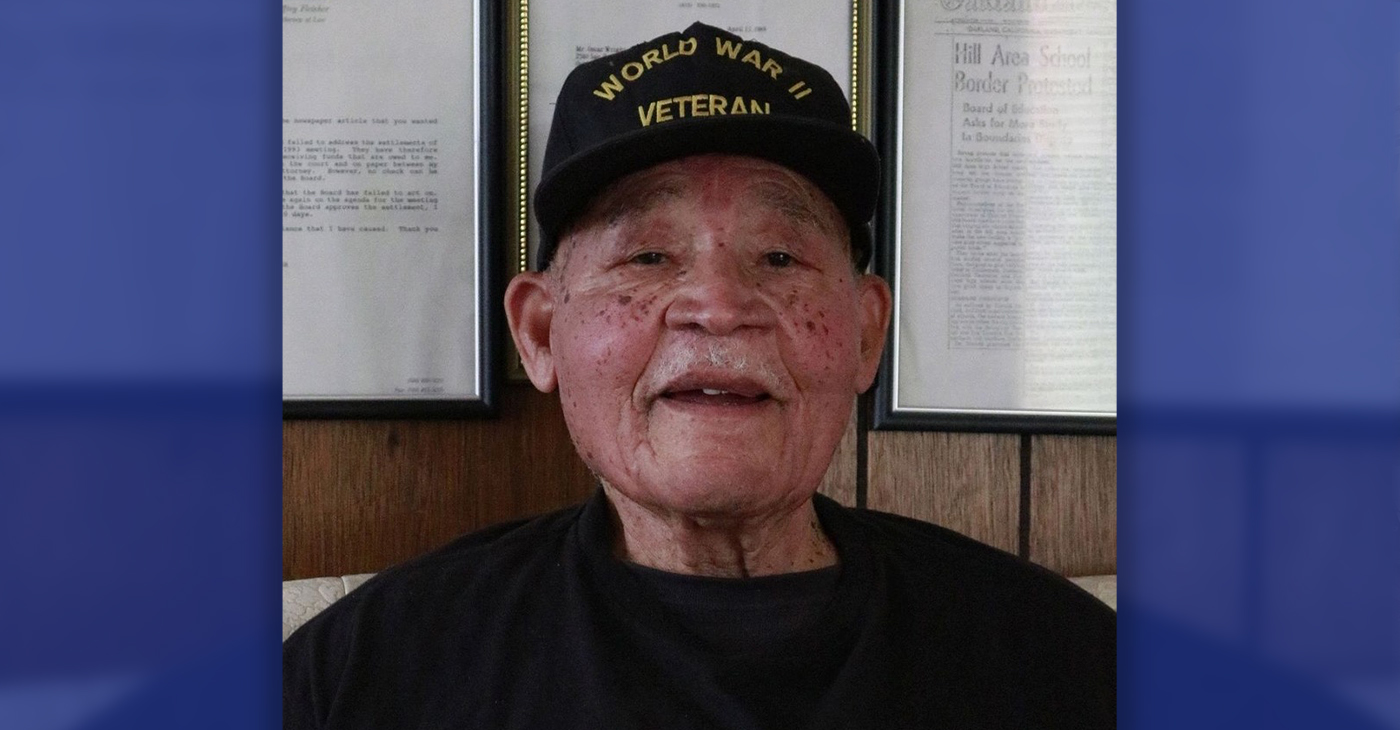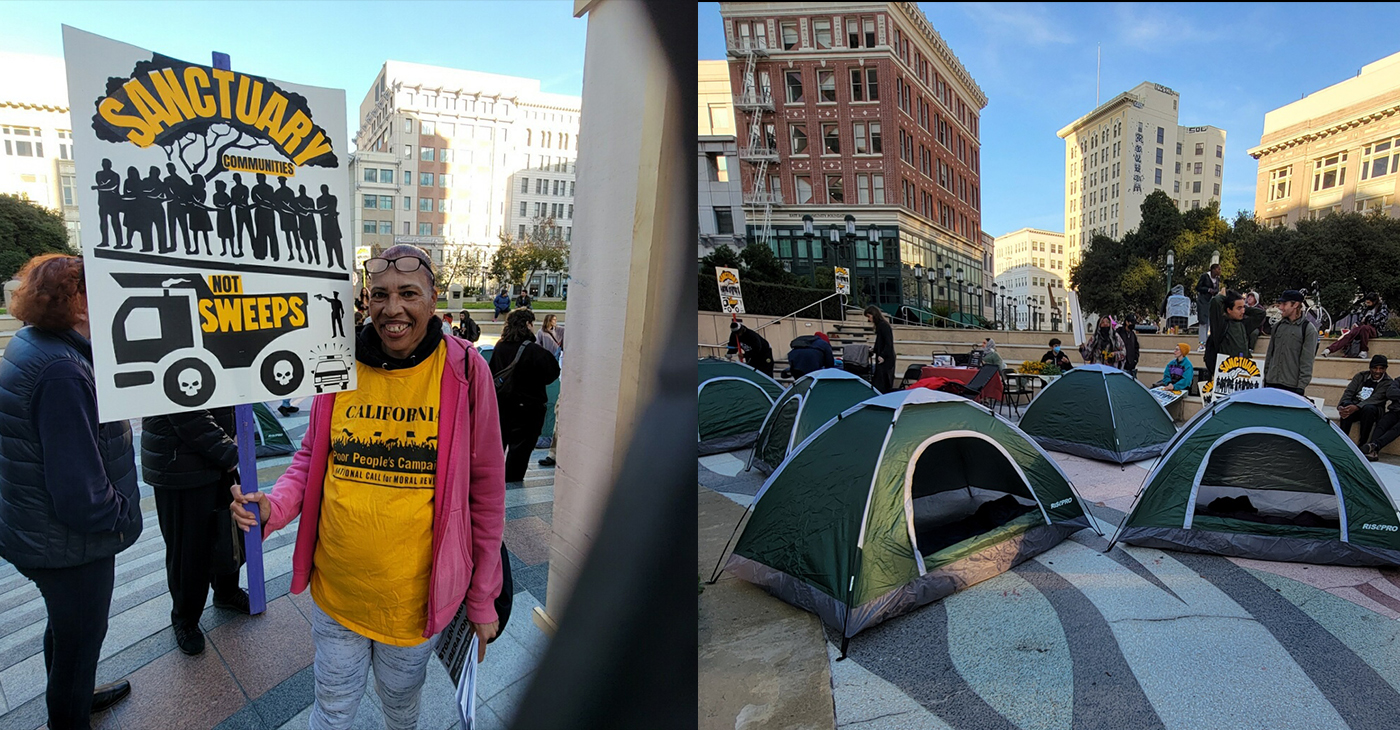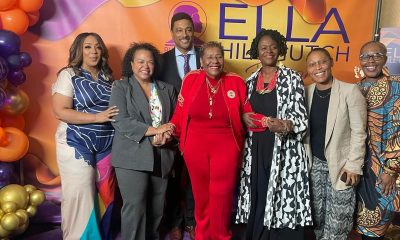Commentary
COMMENTARY: Clean Air Is a Human Right
LOS ANGELES SENTINEL — My baby brother suffered from acute asthma his entire childhood, and witnessing his pain was tough on me, but even more so for my parents. It was disheartening to watch him suffer and miss school when he had trouble breathing. My parents, Mexican immigrants with limited education, worked multiple low-wage jobs to make ends meet. They often had to skip work to take care of him, which also hurt our ability to purchase appropriate treatments for him. For low-income families like mine, having health issues presents hard decisions about priorities and survival.
By Noemí Gallardo, Senior Manager of Public Policy, Sunrun Inc.
My baby brother suffered from acute asthma his entire childhood, and witnessing his pain was tough on me, but even more so for my parents. It was disheartening to watch him suffer and miss school when he had trouble breathing. My parents, Mexican immigrants with limited education, worked multiple low-wage jobs to make ends meet. They often had to skip work to take care of him, which also hurt our ability to purchase appropriate treatments for him. For low-income families like mine, having health issues presents hard decisions about priorities and survival.
This is not a unique story. Asthma is a debilitating, life-threatening ailment that is only getting more common and costly in the U.S. Asthma costs $56 billion each year, directly hurting both the health and financial security of those afflicted. Our nation’s productivity also takes a hit, with 10.5 million missed days of school and 14.2 million missed days of work annually.
Poor air quality caused by dirty, fossil-fueled power plants is a significant contributor to the growth of this serious disease, and polluting power plants are overwhelmingly located in low-income and minority communities. According to the NAACP, approximately 68 percent of African Americans live or have lived within 30 miles of a coal-fired power plant. Meanwhile, a report by the Clean Air Task Force found nearly 2 million Latinos, like my family, live within a half mile of existing oil and gas facilities. My brother and I were born and lived just miles from the now-shutdown power plants located in Oxnard, California. Luckily, he overcame the asthma — not everyone does.
There is a direct connection between replacing fossil fuels with solar energy and the reduction of the risks of asthma, heart attacks and other ailments, according to research from the Harvard T. H. Chan School of Health. Replacing these power plants with solar power is one important step we can take as a nation in curbing asthma as a public health epidemic.
A disproportionate burden
Asthma impacts some communities more than others. According to the above NAACP study, an African American or Latino child is twice as likely to die from an asthma attack compared to a Caucasian American child. African Americans in particular have much higher asthma rates than the general population, with nearly 17% of African American children having asthma, the highest rate among racial and ethnic groups and one that affects both educations and careers.
These are inequities with real consequences, but also a phenomena that is entirely preventable. We have the tools and technology today to reduce the prevalence and danger of asthma for all—especially for our children.
The right way forward
In a recent report, Sunrun outlined the potential to change the standard of living for residents and create cleaner, fresher air by displacing gas peaker plants in Los Angeles with home solar and batteries. This could bring both electricity savings and clean energy to 25,000 homes and 2,500 apartment buildings in traditionally underserved and low-income communities. These are areas with low solar penetration, and also areas most likely to host gas-fired power plants. Using solar can address smog issues today in the communities most affected by the lack of clean air.
Solar battery technology has improved which is important for energy storage and the cost for households to have solar has steadily been dropping over the last two decades. As the cost of solar drops, the opportunity opens up for everyone to have access regardless of socioeconomic status.
Smart policy and green bank financing provide financial support for lower-income residents to buy or lease solar systems. For example, the non-profit GRID Alternatives leverages additional funds to reduce project costs and provide workforce development opportunities for disadvantaged communities. These efforts must be supported by smart state policies that empower innovative companies to expand access to solar, such as redirecting low-income energy bill subsidies into grants that eligible customers can apply to home solar and battery systems.
Clean air should be a human right—not a luxury for the wealthy. My family’s experience has inspired me to become an advocate for low-income communities, ensuring that children like my brother won’t continue to suffer from asthma. On this World Asthma Day, let’s mobilize to fight the disease at its cause. Cleaner air equals healthier lungs, and with solar power, we can move towards fresh air and a healthier planet.
This article originally appeared in the Los Angeles Sentinel
Activism
Living His Legacy: The Late Oscar Wright’s “Village” Vows to Inherit Activist’s Commitment to Education
Kingmakers of Oakland (KOO), a nonprofit organization that works to improve educational and life outcomes for Black boys and men, stated that “Oscar Wright is one of the most prolific, consistent, and committed advocates of equity for Black students and Black Families here in Oakland for the past six decades.”

By Antonio Ray Harvey, California Black Media
Activists mourning Oscar Carl Wright’s death, have pledged to continue his lifelong mission of advocating for Black students and families in Northern California.
Wright, 101, who passed away on Nov. 18, was involved in Oakland’s educational affairs until his death.
Now, friends and admirers acknowledge that carrying on his legacy means doubling down on the unfinished work that Wright dedicated his life, time, and resources to, according to Y’Anad Burrell, a family friend and founder of San Francisco-based Glass House Communications (GHC).
“Mr. Wright did a lot of work around equity, specifically, for Black students based on their needs — whether it was tutoring, passing classes, or graduating,” Burrell said.
Wright became a champion for his children’s education, recognizing the disparities between their school experiences and his own upbringing in the Mississippi Delta.
Burrell told California Black Media (CBM) that the crisis of unequal access to resources and a quality education continues to affect the Oakland Unified School District (OUSD).
According to Oakland Reach, in the city of Oakland, only 3 in 10 Black and Brown students are reading at or above grade level. In addition, only 1 in 10 are doing math at or above grade level.
Oakland REACH is a parent-run, parent-led organization. It aims to empowers families from the most underserved communities to demand high-quality schools for their children.
Wright’s work as an activist had impact across the state but he was primarily known in the Bay Area. Alongside the Black United Front for Educational Reform (BUFER), he filed a complaint against OUSD for violating the Civil Rights Act of 1964.
In 2000, the OUSD school board proposed an action plan to address educational inequity, but it was never implemented.
Wright later founded the African American Honor Roll Celebration at Acts Full Gospel Church, an award that recognizes Black students with a grade point average of 3.0 or better. Each year, more than 1,000 students are honored at this ceremony.
Kingmakers of Oakland (KOO), a nonprofit organization that works to improve educational and life outcomes for Black boys and men, stated that “Oscar Wright is one of the most prolific, consistent, and committed advocates of equity for Black students and Black Families here in Oakland for the past six decades.”
Burrell said that one of the main reasons Wright’s work was so essential for families and children in Oakland that is the direct relationship between acquiring a quality education and affording quality housing, maintaining food security, achieving mental wellness, and securing stable employment.
Wright was the child of sharecroppers from Coahoma County, Mississippi. He attended Alcorn State University, a Historically Black College and University (HBCU).
In the late 1950s, Wright and his family relocated to the Bay Area where he worked as a contractor and civil engineer. He later became an active member of the National Association for the Advancement of Colored People (NAACP).
Burrell said the people who will carry on Wright’s work are part of a “village” that includes KOO’s CEO Chris Chatmon. Wright was a mentor to Chatmon.
“It will not be one entity, one person, or one organization that picks up the baton because it was a village effort that worked alongside Mr. Wright for all these years,” Burrell said.
Burell says that legacy will live on.
Activism
Protesters Gather in Oakland, Other City Halls, to Halt Encampment Sweeps
The coordinated protests on Tuesday in San Francisco, Oakland, Vallejo, Fresno, Los Angeles and Seattle, were hosted by Poor Magazine and Wood Street Commons, calling on cities to halt the sweeps and focus instead on building more housing.

By Post Staff
Houseless rights advocates gathered in Oakland, San Francisco, Los Angeles, and other city halls across California and Washington state this week protesting increased sweeps that followed a U.S. Supreme Court decision over the summer.
The coordinated protests on Tuesday in San Francisco, Oakland, Vallejo, Fresno, Los Angeles and Seattle, were hosted by Poor Magazine and Wood Street Commons, calling on cities to halt the sweeps and focus instead on building more housing.
“What we’re dealing with right now is a way to criminalize people who are dealing with poverty, who are not able to afford rent,” said rights advocate Junebug Kealoh, outside San Francisco City Hall.
“When someone is constantly swept, they are just shuffled and things get taken — it’s hard to stay on top of anything,” said Kealoh.
Local houseless advocates include Victoria King, who is a member of the coordinating committee of the California Poor People’s Campaign. She and Dr. Monica Cross co-chair the Laney Poor People’s Campaign.
The demonstrations came after a June Supreme Court ruling expanded local governments’ authority to fine and jail people for sleeping outside, even if no shelter is available. Gov. Gavin Newsom in California followed up with an order directing state agencies to crack down on encampments and urging local governments to do the same.
Fresno, Berkeley and a host of other cities implemented new rules, making it easier for local governments to clear sidewalk camps. In other cities, such as San Francisco, officials more aggressively enforced anti-camping laws already on the books.
Activism
Celebrating East Bay Leaders Keith Carson and Federal Glover at Geoffrey’s Inner Circle
Several leaders were in attendance including fellow Alameda Supervisors Elisa Marquez and Lena Tam, Superior Court judge-elect Terry Wiley, and African American Sports and Entertainment Group’s founder Ray Bobbitt, along with many other guests.

By Magaly Muñoz
After decades of public service in the East Bay, community members and leaders came together to celebrate Alameda County Supervisor Keith Carson and Contra Costa Supervisor Federal Glover at Geoffrey’s Inner Circle Thursday afternoon.
Several leaders were in attendance including fellow Alameda Supervisors Elisa Marquez and Lena Tam, Superior Court judge-elect Terry Wiley, and African American Sports and Entertainment Group’s founder Ray Bobbitt, along with many other guests.
First elected in 1992, Carson has served District 5 for 24 years and announced his decision to step away from his seat earlier this year, just before the deadline to submit new candidate applications.
He dedicated his long career to bringing access to health care, addressing homelessness, lowering crime, improving business retention, and growing job opportunities in Alameda County.
Glover began his tenure as Contra Costa Supervisor in 2000 and previously served as mayor of Pittsburg in 1998. During his time as Supervisor, he supported initiatives on public transportation, created committees for public safety, and supported task forces on health.
“These two distinguished leaders have dedicated their lives to improving the lives of so many people across Alameda and Contra Costa (counties). Their work has touched every corner of the East Bay,” Alameda County Supervisor and President Nate Miley said.
Leaders from both counties spoke on the supervisors’ legacies and their dedicated years of service.
Contra Costa Supervisor John Gioia said that Glover was the type of person that grew with each challenge that crossed him, especially after he had major surgery in 2020. But Gioia said that the treatment did not deter Glover.
“He’s had tougher races for reelection than any member of our board that I can recall, and he’s always come back stronger than before,” Gioia said.
Sharing a county border, Gioia complimented Carson on his ability to sway leaders from both sides of the political aisle to listen on the issues affecting locals and residents across the nation.
Shannell Scales Preston, who is taking over Glover’s D5 seat in 2025, told event attendees that Glover was a mentor to her for many years. He often would call Preston after Pittsburg City Council meetings with remarks about her performance and how well she spoke up on certain issues.
With Glover spending years as the only Black elected official in local government, Preston would ask him how he managed to not feel lonely about the job. She then congratulated him on being the only supervisor in Contra Costa to have all Black mayors under his district in 2023.
Preston said he’s been a leader to many diverse groups and his tenure has seen leaders of all backgrounds, but particularly paving the way for Black leaders in predominantly white areas.
Miley, who has shared his entire 24-year tenure on the Alameda Board with Carson, tearfully wished the exiting supervisor luck and said he would miss him dearly.
Carson said that as we embark on a “dark time” for everyone across the nation and worldwide in 2025, it’s important to continue communicating and working with groups from all backgrounds because that is the only way things will get done.
“There have been many lonely nights, but then the sun comes out in the morning when you continue to think, ‘I can make a difference,’” Carson said.
-

 California Black Media4 weeks ago
California Black Media4 weeks agoCalifornia to Offer $43.7 Million in Federal Grants to Combat Hate Crimes
-

 Black History4 weeks ago
Black History4 weeks agoEmeline King: A Trailblazer in the Automotive Industry
-

 California Black Media4 weeks ago
California Black Media4 weeks agoGov. Newsom Goes to Washington to Advocate for California Priorities
-

 Activism4 weeks ago
Activism4 weeks agoOakland Post: Week of November 27 – December 3, 2024
-

 California Black Media4 weeks ago
California Black Media4 weeks agoCalifornia Department of Aging Offers Free Resources for Family Caregivers in November
-

 Activism2 weeks ago
Activism2 weeks agoButler, Lee Celebrate Passage of Bill to Honor Congresswoman Shirley Chisholm with Congressional Gold Medal
-

 Activism2 weeks ago
Activism2 weeks agoPost News Group to Host Second Town Hall on Racism, Hate Crimes
-

 Activism2 weeks ago
Activism2 weeks agoDelta Sigma Theta Alumnae Chapters Host World AIDS Day Event


























































